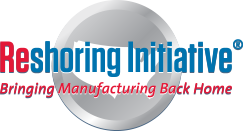
Resource 8: Transition
Ending an outsourcing relationship or closing a factory, especially in a developing country, can be difficult. Managing the transition to U.S. sourcing or production requires detailed planning, e.g.: inventory build-up to cover interim demand, transition of any tooling, etc.
Ending outsourcing relationships:
Sometimes the supplier factory takes aggressive retaliatory actions. In the case of Redman & Associates toys (http://www.thecitywire.com/node/34630#.VXmSMflViko) the retaliation apparently ended the U.S. production which was just getting started. Specifically, recovering tooling, e.g. injection molds, is difficult unless your original contract was explicitly written to cover this possibility. (http://www.chinalawblog.com/2011/09/how_to_keep_your_molds_in_china.html)
Especially if you are shifting from outsourcing offshore to in-house production in the U.S. there will be challenges of developing processes, perhaps forgotten since the work was outsourced, equipment and tooling, finding suppliers, hiring and training.
Closing a factory: can be much more difficult than in the U.S. http://www.reuters.com/article/2013/06/26/us-china-labour-dispute-hope-idUSBRE95P0IP20130626 and http://www.economist.com/blogs/analects/2013/07/labour-disputes.
Resources for legal help in China:
- The Shanghai Promise Law Firm contacted us to offer their services to foreign companies doing business in China. They claim to have significant experience in transitions. Contact Flora Huang at florahuang@puruo.com.
- Harris Moure is an American law firm with an office in Beijing. Harris Moure focuses on assisting American manufacturing companies with their China legal needs, including those needs related to transition when leaving China for manufacturing elsewhere. They also publish the China Law Blog. Contact Dan Harris at firm@harrismoure.com or at 1 (206) 224-5657.
- Biggins Lacy Shapiro & Company helps companies navigate U.S. locations that differ in key attributes, e.g.: skilled workforce availability, wage rates, taxes, land costs, utilities, incentives. Email Michelle Comerford – Ph: 216-973-8872
